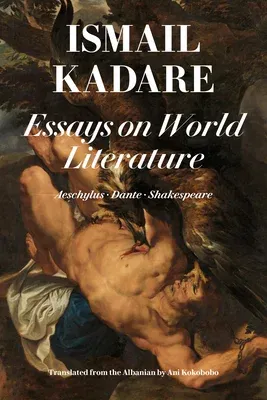The Man Booker International-winning author of Broken April and The
Siege, Albania's most renowned novelist, and perennial Nobel Prize
contender Ismail Kadare explores three giants of world
literature--Aeschylus, Dante, and Shakespeare--through the lens of
resisting totalitarianism.
In isolationist Albania, which suffered under a Communist dictatorship
for nearly half a century, classic global literature reached Ismail
Kadare across centuries and borders--and set him free. The struggles of
Hamlet, Dante, and Aeschylus's tragic figures gave him an understanding
of totalitarianism that shaped his novels. In these incisive critical
essays informed by personal experience, Kadare provides powerful
evidence that great literature is the enemy of dictatorship and imbues
these timeless stories with powerful new meaning.
With eloquent prose and the narrative drive of a great mystery novel,
Kadare renews our readings of the classics and lends them a distinctly
Albanian tint. Like Mark Twain's Mississippi River, Márquez's Macondo,
and Faulkner's Yoknapatawpha County, Kadare's Albania emerges as a
microcosm of civilization; here, blood vengeance in mountain communities
reaches the dramatic heights of Hamlet's dilemma, funereal rites take on
the air of Greek tragedy, and political repression gives life the feel
of Dante's nine circles of Hell.
Like Azar Nafisi's Reading Lolita in Tehran, Essays on World
Literature casts reading itself as a daring act of resistance to
artistic suppression. Kadare's insights into the Western canon secure
his own place within it.

